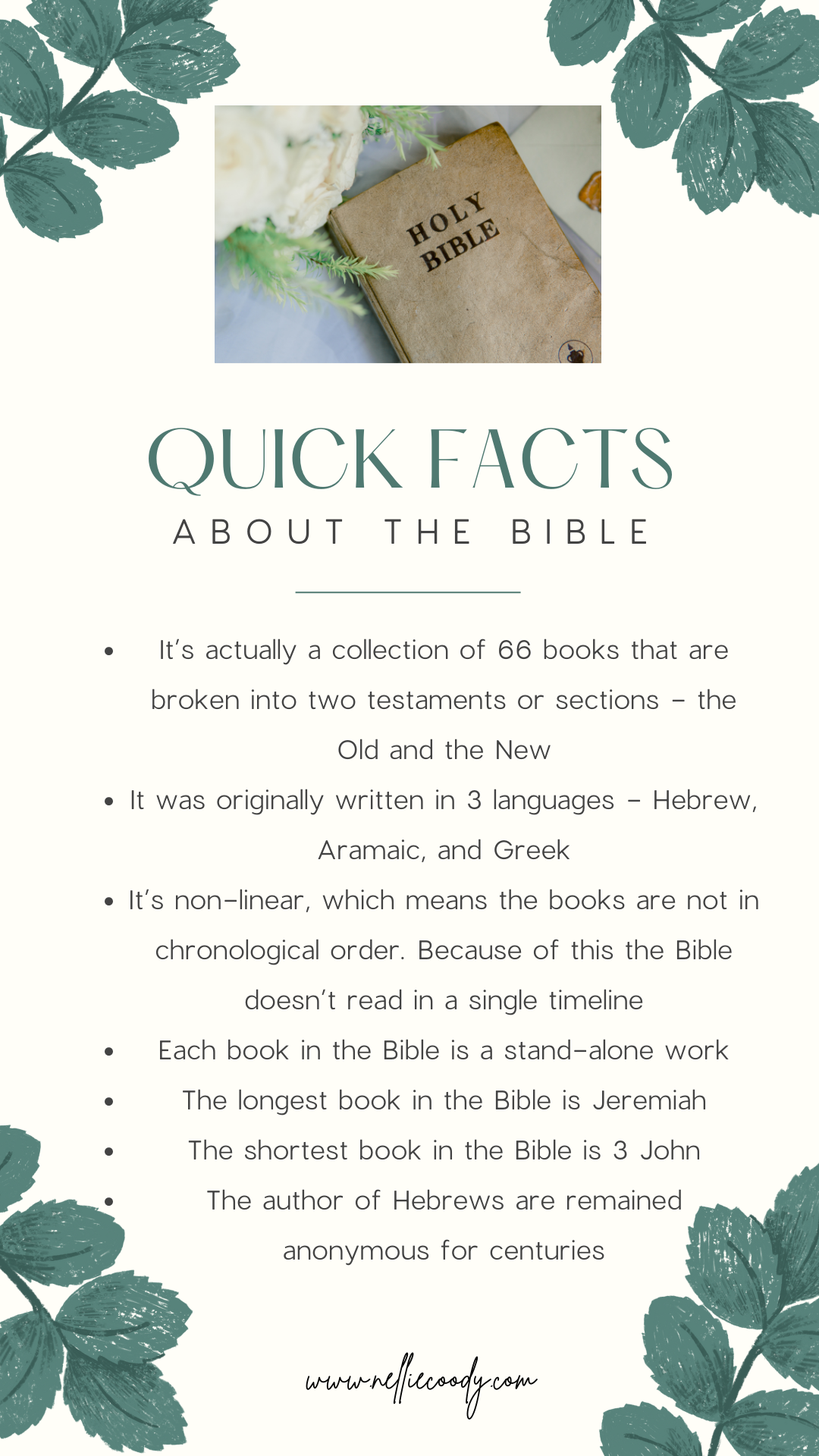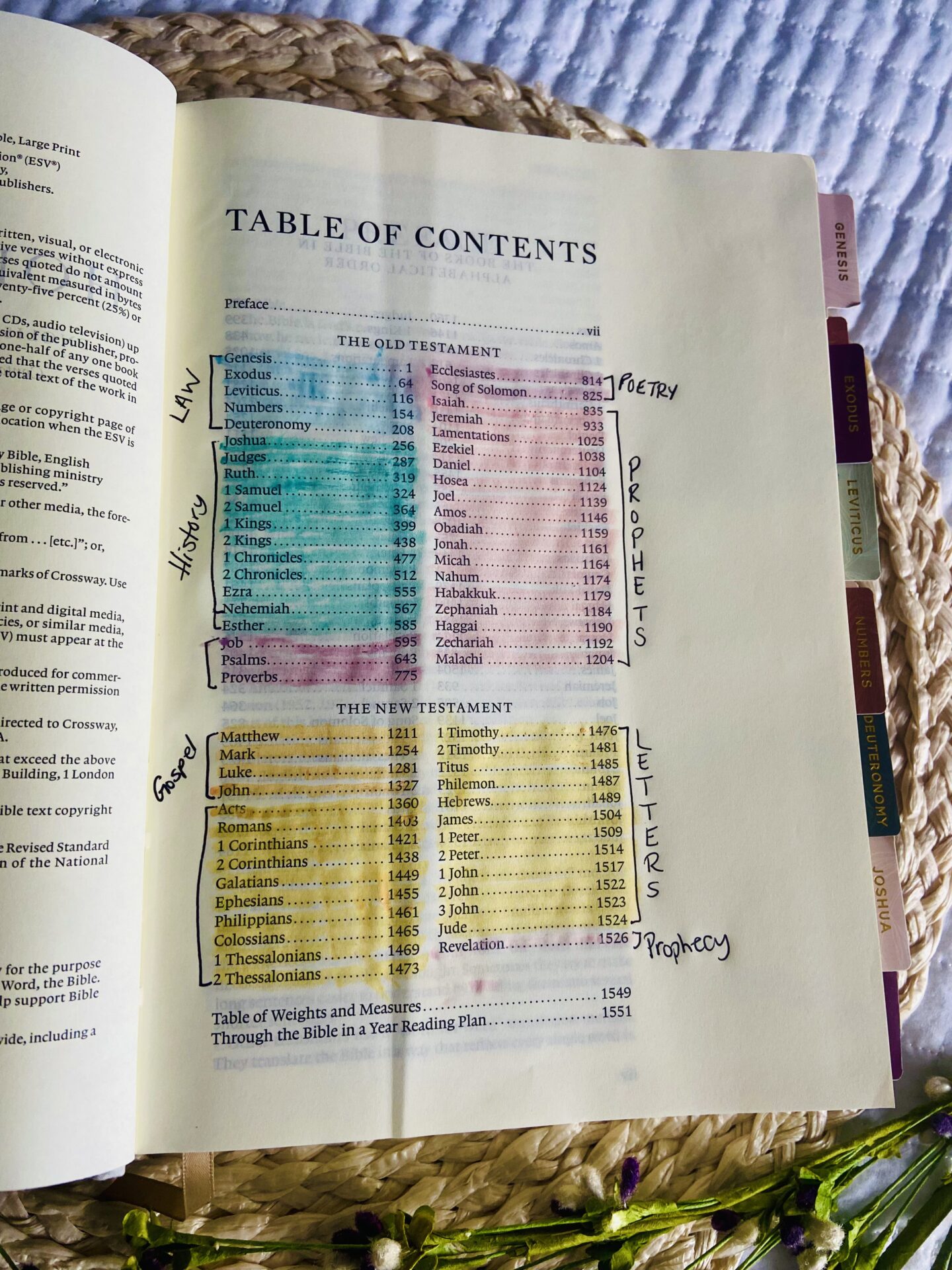
The Bible can be a pretty intimidating book if you’re just looking at it . . . but it doesn’t have to be. In today’s post I’m going to share some practical tips you can use to study the Bible. These tips have helped me for years and I hope you find them useful too.
Pin this Post for Later

The Bible is a unique book because it’s the only book you can read over and over again and still learn something new. It’s not the kind of book that you read and never think about – it’s the kind of book that actually reads you – it’s meant to be thought about and put into action. Hopefully, after you read today’s post you can apply these easy tips and dive even deeper into God’s Word.
**This post includes affiliate links that if used I do receive a small commission at no additional cost to you. If you choose to use any of my links thank you for the love and support.

Find a Quiet Place
It’s true that some people can study well with music or the television going in the background, but when it comes to studying the Bible, I recommend getting in a quiet place. Silence can be really helpful when it comes to meditating on God’s Word because it can help you quiet your mind and focus.


Pray First
Before you open the Bible, stop and take a moment to pray. Ask God to open your mind and heart to what He wants to tell you. And thank Him for His Word and for having the freedom to read it and learn from it. The Bible is more than just a collection of books – it’s an expression of love from God to His children – and it can speak right to your heart and right to your situation if you let it.

Get a Translation You Can Actually Understand
There are many different translations of the Bible out there – New International Version (NIV), King James Version (KJV), English Standard Version (ESV), the Amplified Version (AMP), New King James Version (NKJV), and so forth. It can be overwhelming. And while there are some people who believe that the King James Version is superior to other translations, other people might have trouble comprehending English that was spoken in 1611 (when the KJV translation was originally written). I recommend investing in a Bible translation that you feel comfortable reading. My top picks are NKJV and NIV for anyone just starting to study the Bible, because both translations read like the form of English we use today while staying true to the text.

Get a Bible You Can Write and/or Highlight In
I don’t know about you but when I write something down or highlight it there’s a better chance of me remembering it. And just like writing a to-do list can help you accomplish certain goals and remember tasks, so can writing or highlighting in your Bible.
Something I do is write down the date next to a passage of scripture on the day it helps me. For example, if John 3:15-16 really spoke to me on April 5, 2023, I’ll write that date down next to that scripture to remind myself in the future of the times God’s spoken to me. It’s really nice to look back and see how the Word impacted you in the past and how it’s still impacting you now.
Also, don’t be afraid to highlight scriptures that speak to you because highlighting draws attention to important information in a text. This works for regular study and Biblical study. I recommend using gel highlighters or marker highlighters made specifically for Bible pages. Mr. Pen is a company that makes really Bible highlighters.


Get a Notebook, a Dictionary, & Write Scripture Out
Writing scripture out by hand forces your brain to process the information in a more detailed way, which helps your mind absorb the information. This is why successful students take notes in class – they know the material is more likely to sink in if they write it out. So get a notebook you can write down your thoughts and key points that jump out at you during your study time. Another good studying tip is to use a dictionary (or a dictionary app or Google) to define keywords in scripture. This will help you fully grasp what the writer of the verse is trying to convey and it broadens your understanding of the verse.


The Bible itself has a scripture that talks about the importance of writing out the Word. It’s found here in Deuteronomy – God told Moses to have any future kings of Israel write out and memorize scripture because He knew it would be beneficial to them:

If it’s good enough for a king – it’s definitely good enough for you and me.
Use a Bible Commentary or Commentary App
This next tip is not a necessity but it can definitely help if you want to go deeper in your Bible study. What makes Bible commentaries so useful is that it can help you discover new information about the culture and history of the times the books of the Bible were written. They can also help you check your interpretation of scripture by comparing insights from multiple pastors and Bible scholars. Some of my favorite Bible commentary apps are Enduring Word app, the Logos Bible Study app, and the YouVersion Bible App, but those are just a few free options.


Write Down Your Favorite Verses on a Post-It
One of the best ways you can memorize scripture is by writing them down on Post-Its and putting them in a place you’re sure to see them every day like the mirror you use to get ready. Read them every day and before you know it the Word will get in your heart and your memory.

Some Good Places to Start
While there are 66 books in the Bible and each of them are important, there are certain books that I always recommend to anyone who’s just starting to dive into the Bible. The four Gospels – Matthew, Mark, Luke, and John – are great places to start because they give detailed perspectives of Jesus Christ and His life. The Psalms and Proverbs are also great because they’re encouraging and relatively short. But the truth is anywhere you start in the Bible is a great place to start.



Verse of the Day: For the word of God is living and active, sharper than any two-edged sword, piercing to the division of soul and of spirit, of joints and of marrow, and discerning the thoughts and intentions of the heart. – Hebrews 4:12


